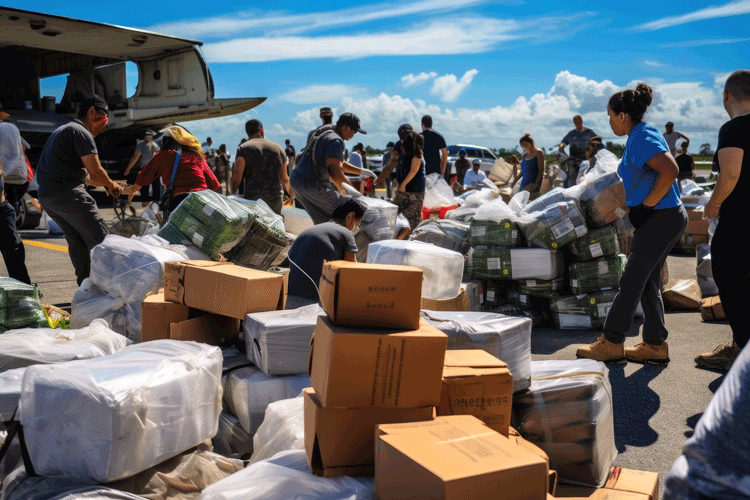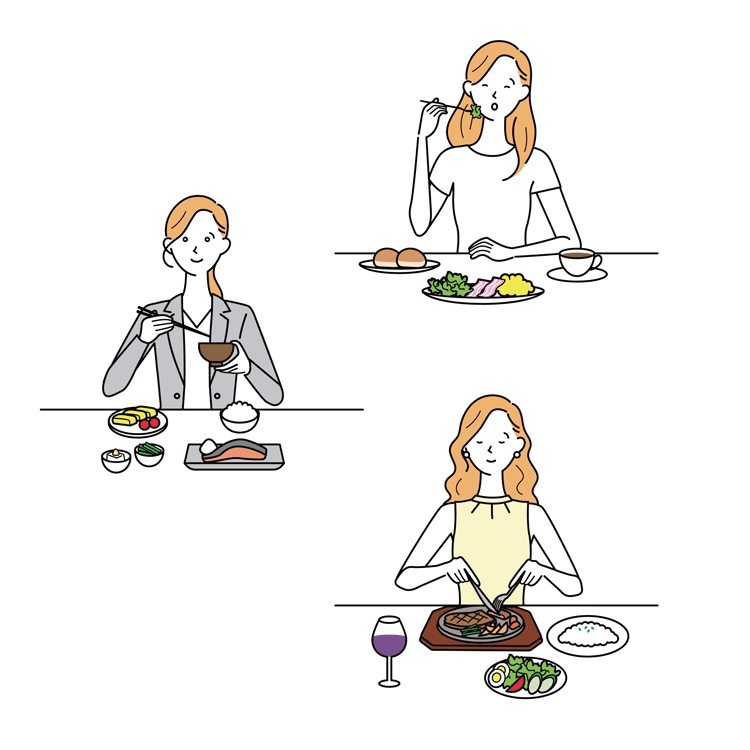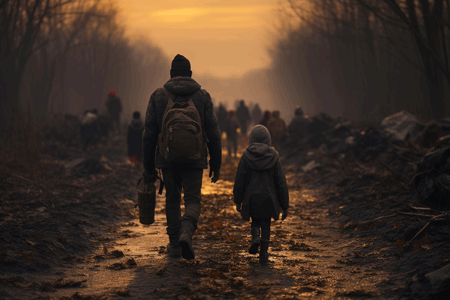Part A Introduction & Ice break

A_1
Let’s introduce ourselves to each other.
My name is ________. What is your name?
A_2
I am ________. Nice to meet you.


A_3
Nice to meet you too, ________. What did you eat for breakfast/lunch today?
A_4
| Answer: |


A_5
I see. Let’s begin our lesson!
Part B Vocabulary

B_1
We will read aloud the words below. Please repeat after me. I will check your pronunciation.
(Please send the mispronounced words and phrases to your student.)
B_2

|
have to do with ~
~と関係のある
|

|
unity
団結
|

|
civil conflict
内戦
|

|
set an example
手本を示す
|

|
tackle
取り組む
|


B_3
Great job! Let’s go on to the next.
(Please send the mispronounced words and phrases to your student.)
Part C Reading

C_1
Please read aloud the article below. I will check your pronunciation and intonation.
(Please send the mispronounced words and phrases to your student.)
C_2

The role of The World Food Programme (WFP)
The World Food Programme (WFP) is the world’s largest organization to help those who are the victims of war, civil conflict, drought, floods, earthquakes, hurricanes, and natural disasters. They help save lives by providing food aid.
The WFP has won the Nobel Peace Prize for its efforts to tackle world hunger in 2020. The year before, the organization saved about 100 million people in need.
The committee’s decision to award the Nobel Peace Prize was unexpected because solving hunger didn’t seem to have to do with peace, but they explained that hunger and war are deeply linked. They also added that one issue cannot be solved without solving the other.
The WFP was honored for setting an example of how important it is for each country to work together. World unity and cooperation are the keys to solving global issues.
*drought 干ばつ(長期間の水不足)
*floods 洪水
*victim 被害者
*people in need 困っている人々
*aid 援助
*hunger 飢餓
*committee 委員会
*unexpected 意外な
*solve 解決する
*floods 洪水
*victim 被害者
*people in need 困っている人々
*aid 援助
*hunger 飢餓
*committee 委員会
*unexpected 意外な
*solve 解決する


C_3
Now, let’s review some words and expressions.
C_4


C_5
Now, I will ask the following questions. Please answer based on the article.

C_6
| 1. | What kind of people did the WFP save? |
C_7
| Answer: |


C_8
| 2. | Why was the committee’s decision unexpected? |
C_9
| Answer: |


C_10
| 3. | What are the two items linked deeply? |
C_11
| Answer: |


C_12
| 4. | What are the key to solving global issues? |
C_13
| Answer: |


C_14
Great job! Now, let’s review your answers.
C_15

Part D Fill in the Blanks

D_1
Now, you will make sentences by filling in the blanks using the words you learned.
(Please send the sentences that need grammar corrections to your student.)
D_2
have to do with ~unitycivil conflictset an exampletackle
| 1. |
Students show ________ when they work together on group projects. |
| 2. |
He had no choice but to leave the country because the _____________ broke out there. |
have to do with ~unitycivil conflictset an exampletackle
| 3. |
I don’t know how to ________ this problem. |
| 4. |
A lot of the trouble ______________ with a lack of communication. |
have to do with ~unitycivil conflictset an exampletackle
| 5. |
She ______ a good _________ by always finishing her homework on time. |


D_3
You did amazing! Let’s go on to the next.
Part E Topic-related questions

E_1
Please answer the following question.

E_2
| 1. | What can we do to help solve the hunger issue as a person living in Japan? |
E_3
| Answer: |
ヒント:
– Food Banks: A place where food is collected to help people in need
– Fair Trade: Pay fairly to the people who make products
– Poverty, Natural Disasters, Food Loss
– Food Banks: A place where food is collected to help people in need
– Fair Trade: Pay fairly to the people who make products
– Poverty, Natural Disasters, Food Loss


E_4
| 2. | What do you think is the problem with food in Japan? |
E_5
| Answer: |
ヒント:food loss, high dependence on imports
*dependance 依存
*dependance 依存


E_6
Next, let’s answer the following questions. Your answer should start with “Yes/No”. Give at least one reason to support your opinion.

E_7
| 1. | Do you think the hunger issue will get better in the future? |
E_8
| Answer: | (Yes, I do. / No, I don’t.) |
| Because |


E_9
| 2. | Do you take any actions to avoid food wast? How? |
E_10
| Answer: | (Yes, I do. / No, I don’t.) |
| Because |
ヒント:
– Buy things that are close to their expiration date
– Don’t leave food uneaten.
*expiration date 賞味期限
*uneaten 食べられてない
– Buy things that are close to their expiration date
– Don’t leave food uneaten.
*expiration date 賞味期限
*uneaten 食べられてない


E_11
Great job! Your answers were fantastic!
Part F Free Talk

F_1
Now, let’s have a free talk based on the following questions.


F_2
| 1. | How much do you spend on food in one day? What food do you buy the most? |
F_3
| Answer: |


F_4
| 2. | What meal (breakfast, lunch, or dinner) cannot you miss in a day, and why? |
F_5
| Answer: |





